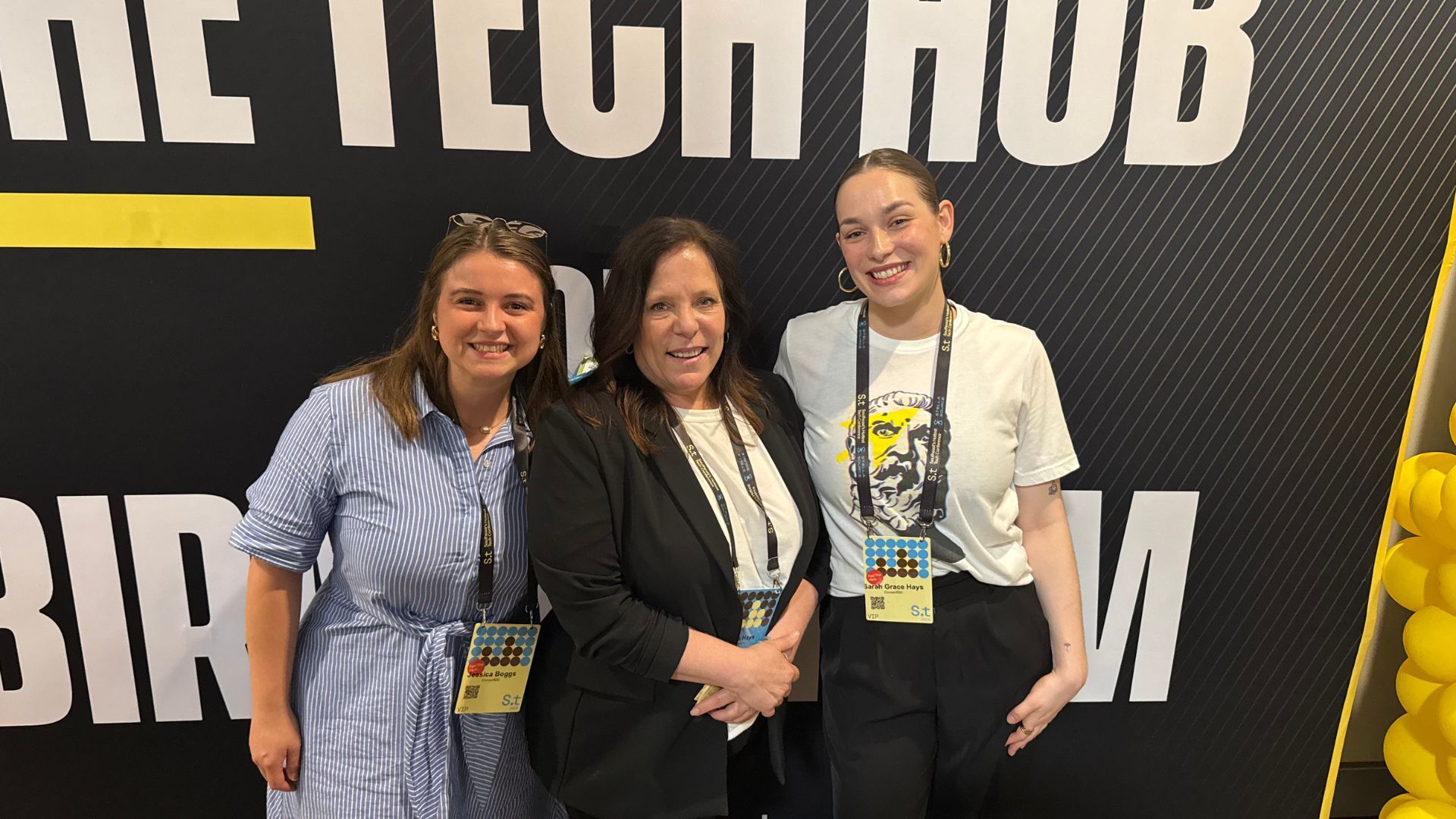From Capital to Community: Building a Responsible Tech Ecosystem
Read Time 10 mins | Written by: Sarah Grace Hays

As technology continues to transform every aspect of our lives, from how we communicate to how we learn, work, and govern, one question remains increasingly urgent: Who is shaping that future, and for whom is it being built?
At the Sloss Tech 2025 Main Stage, the panel “From Capital to Community: Building a Responsible Tech Ecosystem” brought together influential voices from the Kapor Foundation, Siegel Family Endowment, and Omidyar Network to explore the evolving role of capital in the future of tech innovation.
In a fast-paced 20-minute discussion, panelists didn’t just diagnose what’s broken in tech funding—they illuminated real, actionable pathways toward building a more equitable and inclusive innovation ecosystem.
Capital as a Catalyst for Change
Funding is never neutral. From seed-stage investments to large-scale philanthropic grants, the choices funders make determine which ideas get built, which founders get supported, and which communities benefit from technological progress.
Panelists emphasized that while traditional venture capital often rewards speed, scale, and high risk, philanthropy and mission-aligned capital can create space for deeper, more inclusive innovation. Together, these forces have the power to disrupt the status quo, rather than merely reinforce it.
However, to achieve this, capital must be reimagined not just as a means of profit, but as a tool for equity.
What Does “Responsible Tech” Really Mean?
Responsibility in tech can’t be an afterthought. The panelists shared that too often, ethical concerns are addressed after products are built and problems surface—whether it’s algorithmic bias, privacy violations, or platform abuse.
A truly responsible tech ecosystem bakes in values like transparency, inclusivity, and accountability from the very beginning. That means ensuring diverse voices are at the table, especially those most impacted by emerging technologies.
You can’t design ethical systems if your design team doesn’t reflect the communities those systems will serve.
Bridging the Equity Gap
Despite decades of attention, persistent equity gaps remain in tech entrepreneurship. Founders from historically marginalized backgrounds continue to face barriers to accessing capital, networks, and mentorship. However, the panelists didn’t just restate these problems—they shared examples of what is working.
From community-focused incubators to targeted investment vehicles for underrepresented founders, they discussed new funding strategies that prioritize equity without sacrificing innovation.
One common thread: equity must be a strategic goal, not just a diversity checkbox. That means actively dismantling the structural barriers that keep talented innovators from being included in the room.
Scaling Inclusive Entrepreneurship
The conversation also turned toward the future. How do we move from isolated success stories to scalable, systemic impact?
Panelists discussed emerging models that:
- Shift the focus from “founder-first” to ecosystem-first
- Foster collaborative public-private partnerships that embed equity into infrastructure
- Embrace policy and philanthropic funding as levers for lasting, community-rooted innovation
Instead of racing to scale the next unicorn, the panel called for scaling opportunity broadly and equitably.
From Talk to Transformation
Too often, the conversation around ethics in tech becomes stuck in problem identification. This panel stood out because it focused on action.
Some of the key takeaways:
- Fund diverse founders and teams early and consistently
- Align capital with community needs, not just market trends
- Build cross-sector coalitions that include policy, philanthropy, and venture
If we want a tech future that serves everyone, we need to stop funding it like it’s only for some.
The Road Ahead
The most powerful insight from “From Capital to Community” was this: responsible innovation isn’t just possible—it’s necessary.
Tech doesn’t exist in a vacuum. It reflects the values of those who build it and those who fund it. If we want to ensure the future of technology is equitable, ethical, and inclusive, we must intentionally design the ecosystems that support it.
And that starts not just with capital, but with community.
Want to Learn How ConcertIDC Can Help Your Business?
Sarah Grace Hays
Marketing Director
